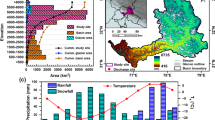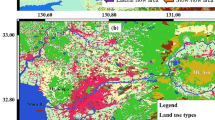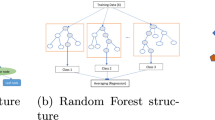Abstract
The pH level of oceans has been largely monitored and studied to make sure that aquatic ecosystems are thriving. However, the pH level of other large bodies of waters, such as rivers, has largely been glanced over. Many rivers contain very sensitive underwater ecosystems, and as a result even small pH changes can largely impact the relative biodiversity. With the addition of increased carbon emissions and pollution, large bodies of water are absorbing more carbon and consequently the pH levels of rivers can rapidly change. This paper studies different deep learning approaches to analyze and forecast pH levels, which include a long short-term memory (LSTM), gated recurrent unit (GRU), recurrent neural network (RNN), and a Temporal Fusion Transformer (TFT) model to determine which algorithm provides the best pH predictive forecast. We demonstrate that the TFT outperforms other deep learning methods through various metrics. In addition, we clarify the importance of temperature as a feature in pH prediction. Lastly, we use the TFT to predict pH anomalies and discover the significance of the predicted data. We found that nine out of the ten predicted data sets have a significant difference compared to the original data.







Similar content being viewed by others
References
Weiss, L.C., Pötter, L., Steiger, A., Kruppert, S., Frost, U., Tollrian, R.: Rising pCO2 in freshwater ecosystems has the potential to negatively affect predator-induced defenses in Daphnia. Curr. Biol. 28, 327–332 (2018)
Fawaz, H.I., Forestier, G., Weber, J., Idoumghar, L., Muller, P.-A.: Deep learning for time series classification: a review. Data Min. Knowl. Disc. 33(4), 917–963 (2019)
Cremer, C.Z.: Deep limitations? examining expert disagreement over deep learning. Prog. Artif. Intell. 1–16 (2021, in press)
Lim, B., Arik, S.O., Loeff, N., Pfister, T.: Temporal fusion transformers for interpretable multi-horizon time series forecasting. Int. J. Forecast. (2021)
Kang, G., Gao, J.Z., Xie, G.: Data-driven water quality analysis and prediction: a survey. In: IEEE International Conference on Big Data Computing Service and Applications, pp. 224–232 (2017)
Wootton, J.T., Pfister, C.A., Forester, J.D.: Dynamic patterns and ecological impacts of declining ocean pH in a high-resolution multi-year dataset. Proc. Natl. Acad. Sci. 105(48), 18848–18853 (2008)
Zare Abyaneh, H.: Evaluation of multivariate linear regression and artificial neural networks in prediction of water quality parameters. J. Environ. Health Sci. Eng. 12(1), 40 (2014)
Palani, S., Liong, S.-Y., Tkalich, P.: An ANN application for water quality forecasting. Mar. Pollut. Bull. 56(9), 1586–1597 (2008)
Yingyi, C., Songk, L., Liu, Y., Yang, L., Li., D.: A review of the artificial neural network models for water quality prediction. Appl. Sci. 10 (2020)
Tiwari, S., Babbar, R., Kaur, G.: Performance evaluation of two ANFIS models for predicting water quality index of River Satluj (India). Adv. Civ. Eng. 2018, 8971079 (2018)
Najah Ahmed, A., et al.: Machine learning methods for better water quality prediction. J. Hydrol. 578, 124084 (2019)
Khadr, M., Elshemy, M.: Data-driven modeling for water quality prediction case study: the drains system associated with Manzala Lake, Egypt. Ain Shams Eng. J. 8(4), 549–557 (2017)
Azad, A., et al.: Prediction of water quality parameters using ANFIS optimized by intelligence algorithms (case study: Gorganrood River). KSCE J. Civ. Eng. 22(7), 2206–2213 (2018)
Barzegar, R., Adamowski, J., Moghaddam, A.A.: Application of wavelet-artificial intelligence hybrid models for water quality prediction: a case study in Aji-Chay River, Iran. Stoch. Environ. Res. Risk Assess. 30(7), 1797–1819 (2016)
Khan, Y., Chai, S.: Ensemble of ANN and ANFIS for water quality prediction and analysis-a data driven approach. J. Telecommun. Electron. Comput. Eng. 9(2–9), 117–122 (2017)
Hu, Z., et al.: A water quality prediction method based on the deep LSTM network considering correlation in smart mariculture. Sensors 19(6) (2019)
Aldhyani, T.H.H., Al-Yaari, M., Alkahtani, H., Maashi, M.: Water quality prediction using artificial intelligence algorithms. Appl. Bionics Biomech. 2020, 6659314 (2020)
Yang, Y., et al.: A study on water quality prediction by a hybrid CNN-LSTM model with attention mechanism. Environ. Sci. Pollut. Res. (2021)
Barzegar, R., Aalami, M.T., Adamowski, J.: Short-term water quality variable prediction using a hybrid CNN-LSTM deep learning model. Stoch. Environ. Res. Risk Assess. 34(2), 415–433 (2020)
Wang, Y., Zhou, J., Chen, K., Wang, Y., Liu, L.: Water quality prediction method based on LSTM neural network. In: International Conference on Intelligent Systems and Knowledge Engineering, pp. 1–5 (2017)
Ye, Q., Yang, X., Chen, C., Wang, J.: River water quality parameters prediction method based on LSTM-RNN model. In: Chinese Control And Decision Conference, pp. 3024–3028 (2019)
Baek, S.-S., Pyo, J., Chun, J.A.: Prediction of water level and water quality using a CNN-LSTM combined deep learning approach. Water 12(12) (2020)
Li, Z., et al.: Water quality prediction model combining sparse auto-encoder and LSTM network. IFAC-PapersOnLine 51(17), 831–836 (2018)
Cao, X., Wang, J., Duan, Q., et al.: Prediction model of key water quality factors in pond culture based on wavelet denoising and CNN-LSTM. Int. Agric. Eng. J. 28(4) (2019)
Langelier, W.: Effect of temperature on the pH of natural waters. J. Am. Water Works Assoc. 38(2), 179–185 (1946)
Author information
Authors and Affiliations
Corresponding author
Additional information
Publisher's Note
Springer Nature remains neutral with regard to jurisdictional claims in published maps and institutional affiliations.
Rights and permissions
About this article
Cite this article
Srivastava, A., Cano, A. Analysis and forecasting of rivers pH level using deep learning. Prog Artif Intell 11, 181–191 (2022). https://doi.org/10.1007/s13748-021-00270-2
Received:
Accepted:
Published:
Issue Date:
DOI: https://doi.org/10.1007/s13748-021-00270-2




